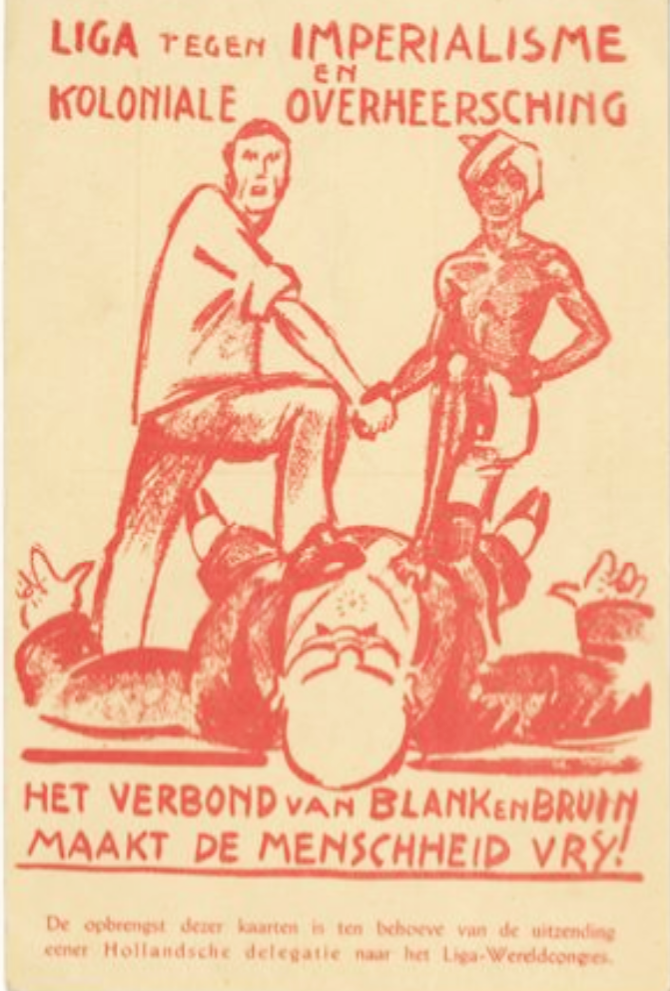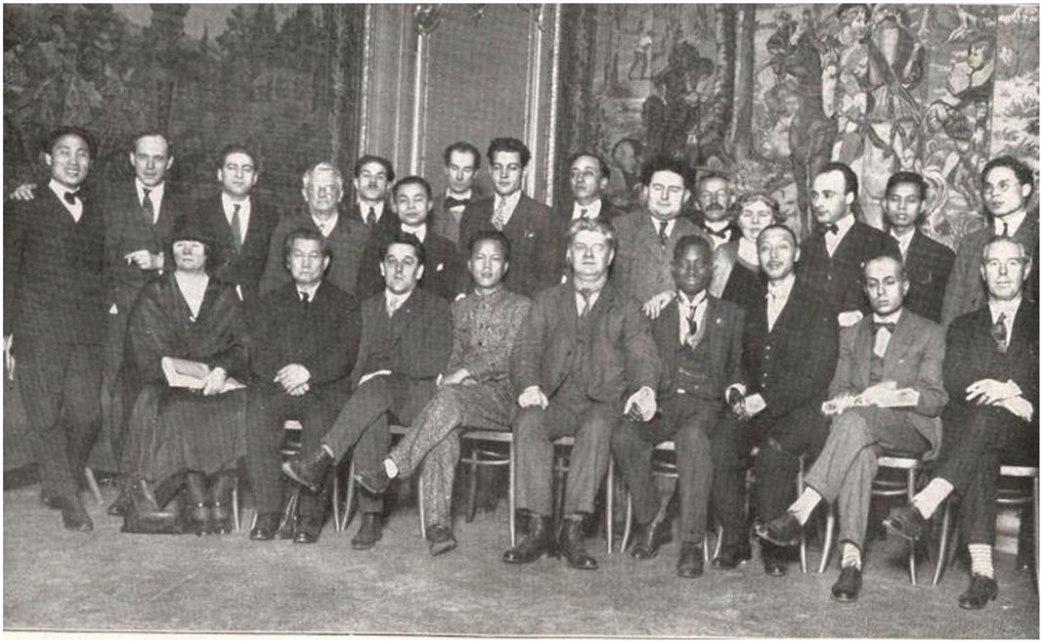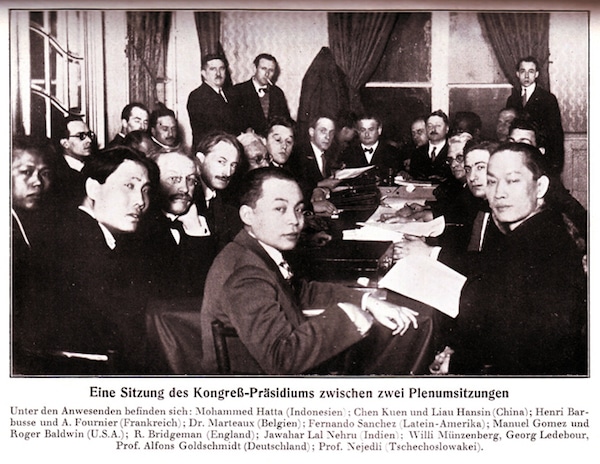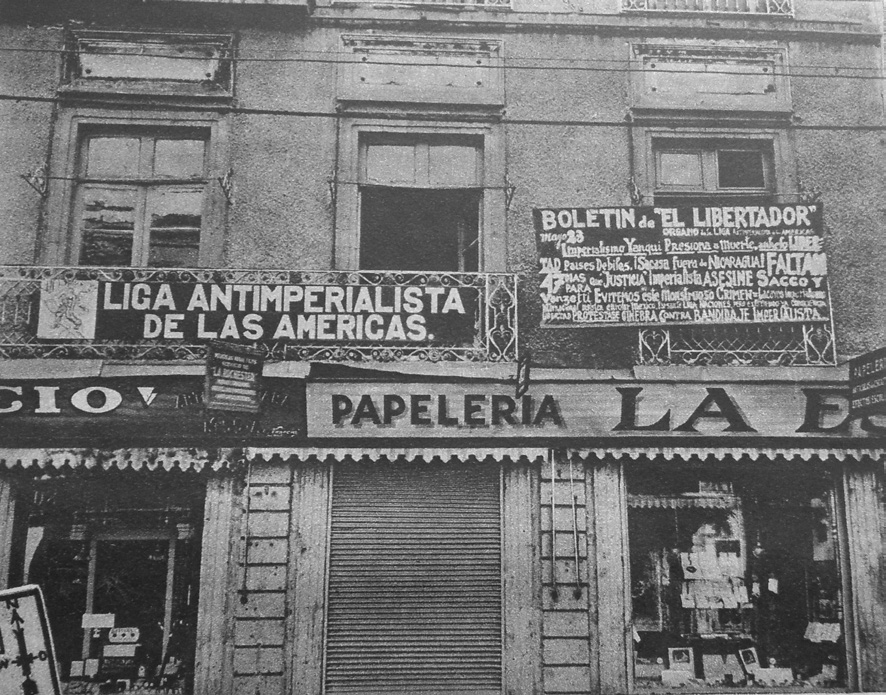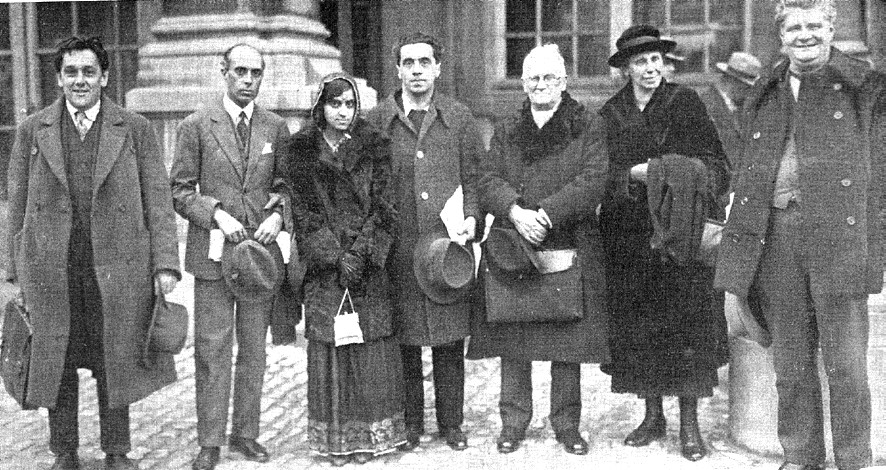
Willi Münzenberg was a key organizer of the historic founding conference of the League Against Imperialism held in Brussels on February 10, 1927 he anticipates in this article. Called by the Communist International, the meeting gathered 175 delegates, the majority from the colonial world and its liberation movement. Aside from Communists, representatives from the Kuomintang (soon to violently leave the alliance with the CCP), The Indian National Congress (including Nehru), the African National Congress (by its President, Josiah Tshangana Gumede), and Albert Einstein among others.
‘The First International Congress against Imperialistic Colonisation’ by Willi Münzenberg from International Press Correspondence. Vol. 7 No. 12. February 4, 1927.
In a speech held at the Third Congress of the Communist International on July 5th, 1921, Lenin, speaking of the tactics of the Communist Party of Russia, dwelt in detail on the movement in the colonies. With particular emphasis he attacked the wrong and old-fashioned conceptions still prevalent among the petty-bourgeois parties of the Second International in regard to the liberation movement in the colonies, saying verbatim.
“In this respect a great change has come about since the beginning of the twentieth century, for millions and millions, representing the actual numerical majority of the population of the globe, now appear as independently active revolutionary factors, and it is obvious that in the coming decisive fights of the world revolution, the anti-capitalist and anti-imperialist movement of the majority of the world’s population, originally directed towards national emancipation, will perhaps play a far greater revolutionary role than any of us expect.”
But a few years have passed since this speech of Lenin’s, but circumstances at the present time already show how correctly Lenin foresaw the development of the colonial struggles and the colonial movement. The last few years have seen an unbroken series of revolutionary fights and risings on the part of nationally and socially oppressed peoples and groups. In Mesopotamia there were the struggles against British dominion, put down by the pious and pacific MacDonald, then H.M. Prime Minister, with bombs and machine-gun fire. In northern Africa, years of heroic resistance to French and Spanish invasion on the part of the Rif-Kabyles. In Egypt, the growth of the nationalist movement against England, leading to sanguinary fights with the British occupation troops. In India, the rapid growth and intensification of the anti-British movement. On Java and Sumatra, only a few weeks ago, a revolutionary movement which spread to almost all sections of the native population. Of yet greater importance for international political development, however, are the struggles which for many years past have been waged against the predominance of foreign imperialism in China by the Chinese people in general and the south-Chinese revolutionary proletariat of the ports and industrial centres around Canton in particular.
Hundreds of sanguinary wars and struggles, and thousands of individual events teach us that the next few decades of international political development will be characterised by the expansion, increase, and accentuation of the fight for national and social liberty put up by oppressed nations.
Among international organisations, it has hitherto only been the Communist International which has appreciated the significance of these struggles for the entire international proletarian class struggle and has attempted to combine these national struggles for liberty with the proletarian class struggle and to turn national efforts into efforts of social emancipation, as has been done in China.
At its last congress at Marseilles, the Second International refrained from assuming any attitude whatsoever towards these important problems. It cannot well do so, since quite a number of its leading members are at the same time Ministers in royal or bourgeois Cabinets, whose prime principle is the maintenance of capitalist rule over the peoples subjugated by their respective States.
In its endeavour to aid the colonial struggles for liberty, the Communist International has hitherto found no support save in the yet juvenile organisation known as the “League against Colonial Oppression”. This association of persons of widely different party tendency, including honest pacifists, Left Social Democrats, anarchists, syndicalists, non-party intellectuals, and Communists, has, in keeping with the times, experienced a very broad and rapid development. After no more than one year’s existence, this organisation has now its organisations in Germany, France, England, South, Central, and North America. In India, the Trades Council of Bombay has undertaken to organise the League.
The extent and intensity of the movement fermenting in almost all suppressed nations against capitalist dominion, is reflected in the response made to the first summons to an international Congress of the revolutionary associations and organisations directed against colonial oppression.
In answer to the to the very first invitations replies were received from hundreds of national-revolutionary groups and parties, who enthusiastically took up this suggestion and appointed delegates to such a Congress, raising the necessary travelling expenses wholly by subscription among partisans.
At the present moment it has not yet been determined at what place the Congress is to be held, seeing that during the last few weeks strong pressure has been brought to bear both by the Dutch and by the American Government, for the purpose of preventing Brussels from becoming the seat of the Congress. There can be no doubt, however, that wherever the representatives of the anti-colonial associations and organisations, who are now already on their way to Europe, ultimately meet, they will form an assembly of several hundreds of the best and most determined representatives of the anti-imperialist movement.
The great international political success which can even now be predicted for the revolutionary movement of emancipation, lies in the fact that for the very first time the representatives of revolutionary China (some 50 delegates of the Canton Government, the Kuo-Min-Tang Party, the individual trade-union associations, and the revolutionary army having been invited) will meet the representatives of India (a delegation of about 20 members, presided over by Lal Nehru of Javah, the delegate of the Indian National Congress to the International Congress). This is the first occasion in the history of the All-Indian National Congress, that one of its representatives takes part in an international conference. The mere meeting of the representatives of these two greatest and most important among the suppressed peoples of the globe, is in itself an essential strengthening of the revolutionary movement of emancipation. Added to this, a third great contingent will appear in the shape of delegates from Mexico and from the Central and South American States, the independence of which is more and more threatened by United States imperialism. The Mexican Government, the trade unions, and the broad masses of the Mexican peasantry will all be represented by special delegates at the Congress.
If it is found possible to coalesce these three great groups the Mexican, South, and Central American States into a firm bloc with the masses of Indian and Chinese workers and peasants, the conference will indeed constitute a turning-point in the history of the struggle for colonial emancipation.
The very coming-together of these three large groups represents a tremendous achievement and a great step forward towards the union and combination of oppressed nations. An association has been formed which can truly be said to span the globe. Added to this, however, numerous other groups, important national-revolutionary organisations and parties such as the Nationalist Party of Egypt and substantial delegations from the French colonies in the North of Africa, from the Negro commonwealth of Liberia, from Syria, from Palestine, and from many other colonies, are taking part in the Congress.
This international conference will be the first occasion for the meeting of trade-union organisations which have hitherto had no mutual connection, since they do not belong to any international association. Besides delegates from the South African trade-unions, there will be representatives of the All-Indian Trade-Union Congress, the Chinese trade-unions, the Mexican and other Central American trade-unions, and the trade-union organisations of East and West Africa. In this connection the programme of the Congress is to provide for a special session of trade-unions.
The strong participation of the colonial organisations has likewise induced a number of European parties and organisations, besides individuals, to pay far greater attention to the conference than was the case during its early preparatory stages.
The participation of particularly numerous delegations has so far been announced by Germany, France, Belgium, and England. The British delegation comprises, inter alia, official representatives of the Independent Labour Party (in which connection Brailsford has been named), Maxton, M.P., Lansbury, Vice President of the British Labour Party, Ellen Wilkinson, M.Z. Davies, A. J. Cook, Purcell, and a number of other labour leaders, forming together a group of 25 persons.
The Congress will be the introduction to a new and considerable expansion, intensification, and invigoration of the revolutionary struggle of all suppressed peoples and classes.
International Press Correspondence, widely known as”Inprecorr” was published by the Executive Committee of the Communist International (ECCI) regularly in German and English, occasionally in many other languages, beginning in 1921 and lasting in English until 1938. Inprecorr’s role was to supply translated articles to the English-speaking press of the International from the Comintern’s different sections, as well as news and statements from the ECCI. Many ‘Daily Worker’ and ‘Communist’ articles originated in Inprecorr, and it also published articles by American comrades for use in other countries. It was published at least weekly, and often thrice weekly.
PDF of full issue: https://www.marxists.org/history/international/comintern/inprecor/1927/v07n12-feb-04-1927-inprecor-op.pdf
